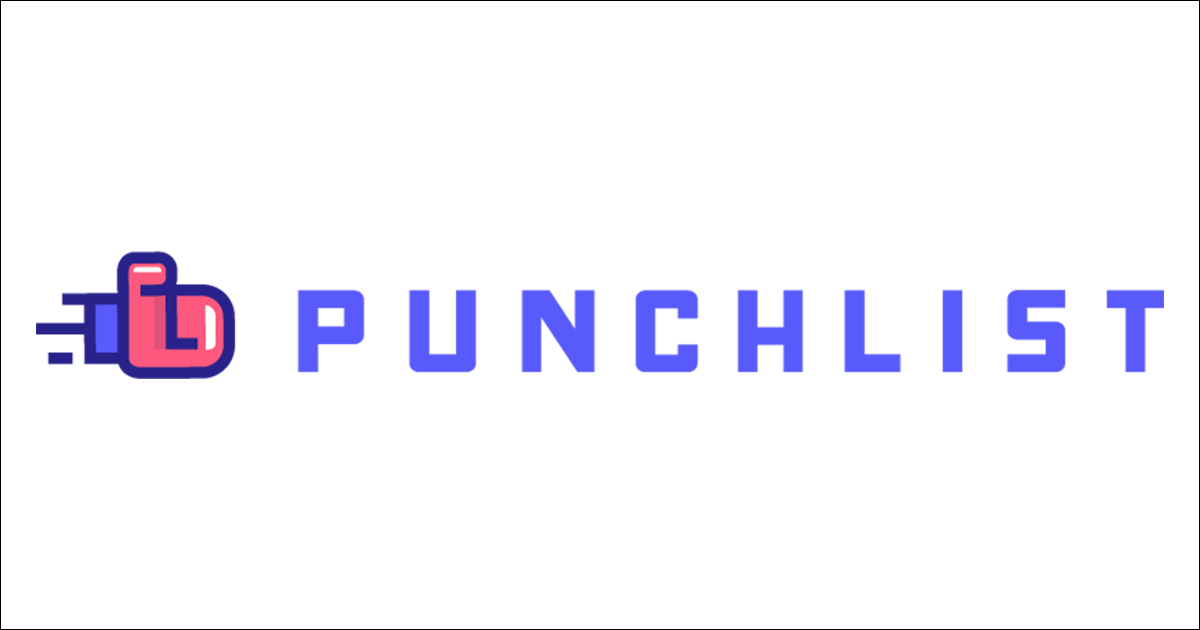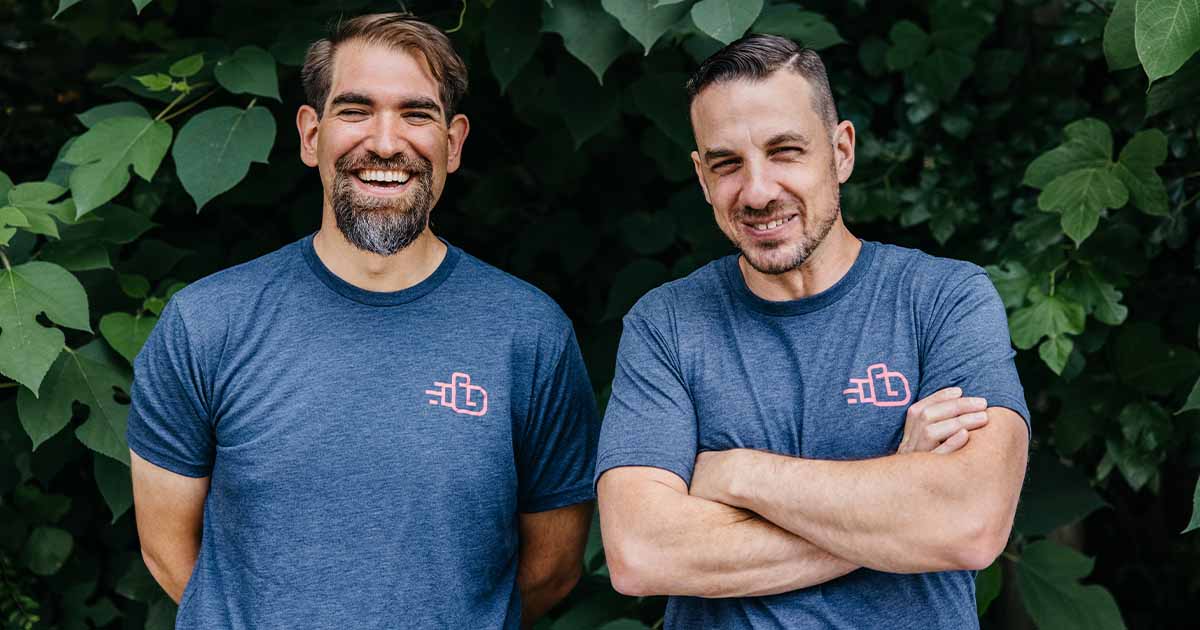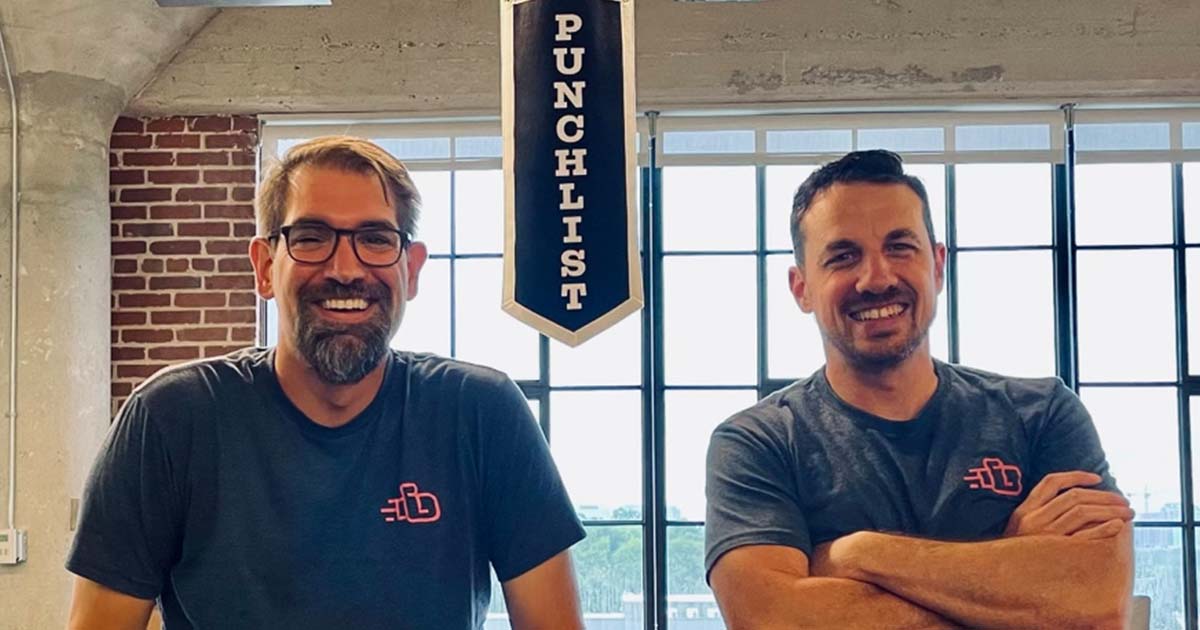Punchlist Profile

Last Updated: By TRUiC Team
Punchlist is a creative collaboration software that makes communicating with clients and coworkers and developing top tier projects quick and easy.
Interview With Pete Bernardo
Describe your product or service:
“Punchlist is a collaboration layer overtop your creative projects, allowing you to annotate and get the feedback you need from your clients and teammates.
Creative teams, agencies, and startups struggle getting feedback efficiently on their work. Back-and-forth emails, confusing Slack threads full of random screenshots, and endless meetings mean longer days, delayed projects, and more stress.
At Punchlist, we give you an annotation layer directly over your work. There is nothing to install — all you have to do is share one URL, and you can move on to focus on what you're best at: the actual creative work.
Whether it's a live website, an image, a PDF, or a product mockup, Punchlist is the best markup tool to reduce friction and improve collaboration. We make it incredibly easy to get the asynchronous feedback you need, so you can get more projects done on time and get more peace back in your day.”
Describe your company values and mission:
“At Punchlist, we're on a mission to change the way creative work gets done. We're about building the tools we always wished we had at the company we always dreamed about building.
Our Team's Core Values:
- Resourceful: We’re nimble. We innovate. We adapt. Above all, we help each other — and our customers — find solutions to problems in clever ways.
- Bold: We aim to build a best-in-class product and understand the risks it will take to get there. When we encounter hard decisions, we work together to define a path and have the confidence to see it through.
- Collaborative: If we want to change the nature of creative work, we have to work well together. We are not limited to our roles — we each have unique perspectives that elevate our product.
- Empathetic: We believe in treating people like people. We respect the experiences, ideas, and feelings of our teammates and our customers. Our goal is to bring more positivity to the Internet.
- Ambitious: We set our sights high and pursue our goals with courage. Whether it’s company growth, personal growth, or customer experience — we aim for excellence and push to exceed expectations.”
How are you funded? I.e. type of funding, number of funding rounds, total funding amount.
“Punchlist is a seed-stage startup, most recently raising a $2 million funding round co-led by Overline and PJC.”
How big is your team? Tell us a little about them (I.e. co-founders, freelancers, etc.)
“We have a distributed team of six full-time employees (product, engineering, marketing) and a handful of freelancers around the world as well.”
How did you come up with and validate your startup idea? Tell us the story!
“Punchlist came out of a pain I consistently saw throughout my career working on creative projects at agencies. Big or small, design or development, gathering feedback from stakeholders was always a source of friction in getting projects wrapped up.
I also had never built software before. So I was trying to think through a project that would solve something I was passionate about, which would help me get through the frustrations around learning something new like software development. So I chunked down the project into small tasks and spent nights/weekends building a prototype to show people.
After a while, the prototype evolved into something people felt good paying for. And fast forward to today, there have been tens of thousands of feedback items left on projects through Punchlist, and 10,000+ users of the app.”
How did you come up with your startup's name? Did you have other names you considered?
“In software development and construction, a ‘punch list’ is your task list of what is left to be done. Stakeholders do a walkthrough of a project and make the final list so everyone can be clear and focused. It is a perfect name for what we are trying to accomplish for the creative industry.”
Did you always want to start your own business? What made you want to become an entrepreneur?
“Yes! I come from a family of business owners, and it was always what I personally gravitated towards. But it took me a long time to really have the courage to go out and take the leap into entrepreneurship. I personally love the sense of accomplishment you get from running a business — because of the impact you can make day-to-day and also because of how hard it is. There is a ton of personal self-doubt that goes with being an entrepreneur, and any win — big or small — gives you a burst of momentum.
There are a lot of parallels to being a parent. Some days are a struggle, and others are tremendous, but there is so much pride in the experience that for me, it feels like a calling.”
Did you encounter any roadblocks when launching your startup? If so, what were they and what did you do to solve them?
“I think roadblocks are a daily occurrence for any startup at any stage. Dealing with roadblocks and solving them creatively is the point of startups. Whether these challenges are in your software, how you market, or just the day-to-day of running the business, it’s all about identifying roadblocks and collaborating to work through them with your team.”
Who is your target market? How did you establish the right market for your startup?
“While a wide variety of people actively use Punchlist, our core focus right now is creative teams. Whether that's a digital agency, design firm, in-house marketing team, or a startup.
Meanwhile, we've seen everything from Ph.D. candidates annotating electrical diagrams to book editors proofreading 200-page novels and even landscape architects handling their client feedback.
10,000+ people use Punchlist, from local agencies like Edgar Allan and Syrup to global agencies like MediaMonks and Anomaly. And even global tech enterprises like Shopify and NCR.
There is also a very active group in the remote education space – teachers and students collaborating on class projects using Punchlist. We've seen dozens of universities and colleges around the world using the app.
The target market is really creative teams – especially cross-disciplinary teams who need to collaborate with a unified language of feedback.”
What's your marketing strategy?
“Our marketing strategy is ‘bottom-up’ and centers around community and education.
Punchlist tends to be more valuable when shared (since you need to send the link to a collaborator in order to get feedback on a project). We often find that the people who receive a share link sign up and become active users themselves.
And around the flywheel goes.
The tool is very intuitive, and as soon as people get their hands on it, they experience an "aha" moment that it will make their job easier. So we make it as frictionless as possible to test-drive the app for free.
That said, oftentimes our customers have customers of their own (i.e., agency clients), and this requires a bit of education on how to get the most out of the app. A lot of our marketing revolves around educating our users on how to get their work done more efficiently using Punchlist's features and integrations.
As far as community goes, we try to nurture an active community in the creative space — from designers to developers to project managers and agency founders — and spotlight our customers' success and creative work.
These creative industries can get very competitive and cutthroat. People don't talk to each other enough. Our goal is to bring a little positivity and fun back into the creative work and showcase all the cool things our customers are able to create and launch (in record time) with a little help from Punchlist.”
How did you acquire your first 100 customers?
- “Organic search and word-of-mouth
- Community organizations that we belong to (Bureau of Digital, Techstars)
- A little bit of Google Ads with high-intent keywords (people looking for this kind of annotation tool or website markup app)
- Launching on Product Hunt”
What are the key customer metrics / unit economics / KPIs you pay attention to to monitor the health of your business?
- “New Subscribers
- Monthly Recurring Revenue
- Weekly Active Users (WAU), along with the usage measurement comes things like project creation, number of feedback items, installing an integration, etc.
- Increased Retention
- Reduced Churn
- NPS Feedback
- Referrals/Shares”
What's your favorite startup book and podcast?
“I used to be all about podcasts like ‘Startups for the Rest of Us,’ IndieHacker, and ‘How I Built This.’ Lately, I have been listening to a lot of non-startup content like college football, Formula One racing, and current events.
I’m in the thick of the startup life already; I’ve found, for me, it is good to take a break and seek other inspiration.
In terms of books: ‘Company of One,’ ‘The Mom Test,’ and ‘The Dip’ were all important to me.”
What is a song or artist that you listen to for motivation?
“I’m laughing at this one because music and how I leverage it is really important to me. Often my selection is reactionary to what I’m trying to accomplish. Deep work or strategy planning, and I’m turning to ambient music or low-fi beats. If I’m working on something stressful, I’ll put on some Jack Johnson or a beach-laidback playlist. If I’m trying to power through a bunch of small tasks, I’ll turn to 90s rock or Rage Against the Machine. I’m all over the place.”
Is there a tool, app, or resource that you swear by to help run your startup?
“I don’t think there is one app to swear by. To me, it is all about the systems working together. Data and processes in a startup come to you in a lot of different forms. Being able to triage them and stay on top of tasks consistently requires a system.
I personally use a combination of Asana and Notion: things to do and things to remember. Most of my other tools like chat or email all pipe back to Asana or Notion.
And of course, we eat our own dog food by using Punchlist as much as possible for reviewing pages, content, micro-copy, presentation decks, and pretty much any visual work.”
How do you achieve work/life balance as a founder?
“It is really hard to achieve this. And I think if you require a ridge balance, being a founder might not be a great fit. Part of the deal is that it’s pretty hard to predict what the next hour will bring — much less the next week. I’ve baked in a couple of things in my schedule that I religiously do: take the kids to school, attend most of their sports practices, cook for the family, and be present during vacations. In between that, my schedule is pretty variable, and the amount of time I have for life vs. work tends to fluctuate.”
What was your first job and what did it teach you?
“I swept floors at the beauty salon my mother worked at and bussed tables at my uncle’s restaurant in Italy. At the salon, I got to see where customer service and a skilled profession meet. Keeping a conversation [and] being warm while trying to move fast while knowing a mistake is often irreversible. At the restaurant, I got to see a family business with my uncle’s name on the awning and the pride that comes from building something yourself.”
Recommended:
- Keep up with more startup companies by visiting our list of the top startups to watch.
- Hear startup stories from real founders on the Startup Savant podcast.
- Form your own startup by reading our review of the best online incorporation services.
Tell Us Your Startup Story
Are you a startup founder and want to share your entrepreneurial journey withh our readers? Click below to contact us today!
More on Punchlist Labs

Founder of Software Startup Punchlist Shares Their Top Insights
Pete Bernardo, founder of software startup Punchlist, shared valuable insights during our interview that will inspire and motivate aspiring entrepreneurs.

Here’s How You Can Support Software Startup Punchlist
We asked Pete Bernardo, founder of Punchlist, to share the most impactful ways to support their startup, and this is what they had to say.


